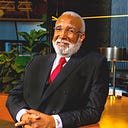Mirrored: A Reflection of Struggle In The Era Of John Lewis
As I read the essay of the late Representative John Lewis, I reflected back on the struggles of Black police officers in my generation of active law enforcement from 1974–2003. The issues and struggles during my life generation, which mirrored that of John Lewis who shared the same life generation, replicated themselves through my experiences as a Black police officer in a White-dominated profession. I reflected back on Black officers being denied certain coveted positions and promotions that were dominated by White officers. I reflected back on the marches in which I participated, both locally and nationally, against police departments that denied Black police officers promotions and positions of upward mobility. I reflected back on the late 70’s and early 80’s of my career. A few Black police officers addressed racial concerns within their respective police departments. As a result, the on-duty White police officers would refuse to back up the on-duty Black police officers. It was so bad, that in one department, where I personally visited and saw for myself, the off duty Black police officers would shadow and provide independent back up for the on-duty Black police officers; thus, ensuring their personal and physical safety. Early in my career in the Los Angeles Police Department, there were no Black detectives working homicide units citywide. There was only one Black sergeant working as an assistant watch commander citywide during that same time period. Under my leadership as the President of the Oscar Joel Bryant Association, a Black Law Enforcement Association, these specific issues were addressed and the lack of Black detectives and sergeants working in those positions was rectified at that time by ensuring Black representation in those assignments. John Lewis admonished all of us that, “You must also study and learn the lessons of history”. The struggles and marches that were experienced by a few of us as compared to the total of those that were represented, facilitated in meaningful changes for that time. Those few Black police officers, who marched against police departments and successfully sued municipalities for racial discrimination in law enforcement, sacrificed their careers. Many Black police officers did not or would not march and participate in fighting racial discrimination in law enforcement for future generations that would benefit from the sacrifice and struggle of the brave few. Finally, John Lewis most eloquently stated, “Ordinary people with extraordinary vision can redeem the soul of America by getting in what I call good trouble, necessary trouble”. This was not his benediction, but a clarion call to us all.
Timothy T. Williams, Jr.
